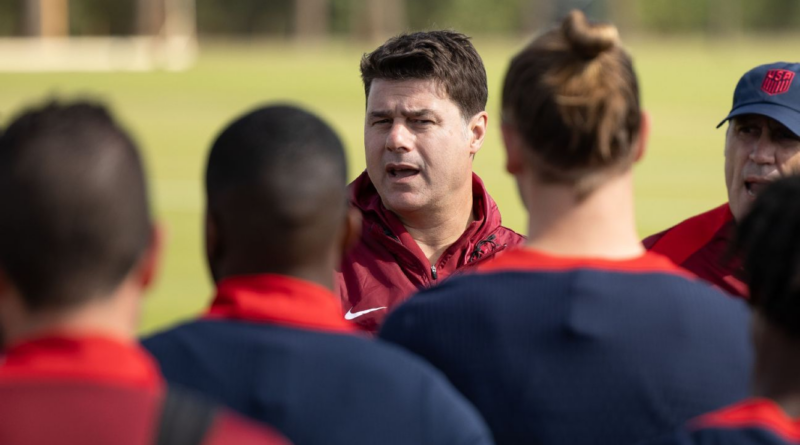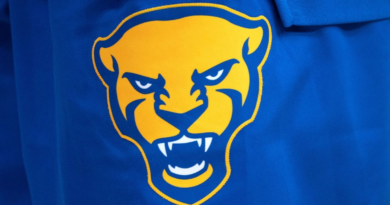Can Pochettino really transform the USMNT's mentality — and how will he do it?
MIAMI — Mauricio Pochettino has led some of the most distinguished clubs in Europe, but when he accepted the role of U.S. men’s national team manager, he made the choice to step into a new environment in the international game. Four months into the job, Pochettino continues to navigate the nuances of his new role.
“Yes, it’s been months, but there have been very few weeks working together,” Pochettino said to ESPN. “The time we have together is very [limited] that we can spend with the players, but it is about discovering new things every time we are with the players.”
He and his staff are still working on understanding what the group needs in order to be successful at the 2026 FIFA World Cup, which will be played partially on home soil. The former Tottenham Hotspur, Paris Saint-Germain and Chelsea manager noted that the biggest challenge he faces is creating a winning mentality within the team.
“If you speak to any coaches from different national teams, different countries, clubs, coaches talk about mentality and the challenges to create the winning mentality,” Pochettino said. “The belief — that is the truth. If we are able to identify the players, 26 or 30 players that share the same mentality, I think we could be a very good group of players with the possibility to compete at our best. It is not only to identify the talent — it’s about the talent and the strong mentality, the winning mentality.”
Mentality is one of those traits that often is defined as “I know it when I see it.” These days, though, there are metrics that can reveal how effective a team is in this area. Is the team winning its duels, in the air and on the ground? How effective is it in defending set pieces? Nevertheless, it remains a highly subjective assessment.
Attitude and competitiveness are topics that Pochettino is passionate about. In his interview with ESPN, when the subjects come up, he goes from having one hand in his pocket to gesticulating to get his point across, and the Argentine points to his home country as the best practitioners of mentality.
“We talked about Argentina because it’s the [world] champion and they have very good players, but for me the most important difference is the mentality — how they compete as a group and the belief that they have … when they go to the pitch,” he said. “They go to war and to defend your badge, your flag, and that is what we need to create.”
Pochettino believes that his players “have a really good mentality, a really good culture.” Center back Tim Ream said he felt Pochettino’s emphasis on the topic was more down to making sure his players understand that every detail matters.
“I think it’s more of [having] a winning mentality every single day, every single training session, every single pass,” Ream said. “Everything matters, right? And I think that’s more what [Pochettino’s] desire and his meaning is, is that everything counts.”
That Pochettino has referred to the team’s mentality and competitiveness practically from the moment he took the job, however, suggests that there is room for improvement.
There was a time when the U.S. mentality couldn’t be questioned. When the USMNT was just beginning to assert itself on the world stage in the 1990s, the team’s attitude was what helped make it competitive, even when there was a talent deficit, which was often the case. Now, it’s not as consistent.
“Sometimes there’s a moment when you go up and down,” Pochettino added. “The most important is to be consistent, to keep your capacity and your mentality. We are very happy with them.”
The issue of consistency predates Pochettino’s tenure as manager.
When the U.S. flamed out of last summer’s Copa América, then-manager Gregg Berhalter and some players spoke of how the team didn’t always bring the requisite intensity. At the time, the U.S. looked like a team of players who had gotten comfortable. Only when a performer was injured or suspended was there any change in the lineup.
The issue seems to run even deeper, though. Pochettino’s arrival has opened up the competition for places, yet there have still been moments in his brief tenure when the team hasn’t brought the requisite attitude.
In a 2-0 friendly defeat to Mexico, the U.S. appeared to wilt in the face of El Tri‘s pressing. The performance in that match of substitute Alejandro Zendejas was notable for just how much more intensity he brought to the field compared to his teammates. Even in the 4-2 win over Jamaica, in the second leg of the Concacaf Nations League quarterfinals, the U.S. took its foot off the proverbial gas in the second half, conceding twice.
The extent to which the USMNT can be challenged in this area during games is a concern given the lack of competitive fixtures on the calendar ahead of the 2026 World Cup. There are the Concacaf Nations League matches in March, followed by the Concacaf Gold Cup this summer, but that’s it.
2:03
Berhalter ‘excited’ by Pochettino’s USMNT project
Gregg Berhalter reflects on his USMNT sacking and Mauricio Pochettino’s appointment.
Pochettino’s hope is that the carrot of playing in those tournaments will be enough to drive his players forward.
“I think it’s a good opportunity, because of that competitive stress that makes you evolve, [where] you have to compete to get to the World Cup,” he said. “But now there’s the challenge that we put into the team and players.
“We planted a seed of competitiveness to understand that there are no friendlies. Each game is an opportunity for a player to demonstrate that he can be competing for a spot at the World Cup. The American player is competitive, and we have to understand, and are understanding, that the upcoming games against Costa Rica and Venezuela are games to play and compete. That is something important that we are transmitting.”
Pochettino knew that upon signing the U.S. Soccer contract, the hopes of an entire country rested on his shoulders. The coach smiled while insisting he feels no additional pressure from the responsibility to bring joy to a nation’s fan base, but his serious tone conveyed the seriousness of the matter.
Although he can only do so much to guide the USMNT to the coveted trophy presented on July 19, 2026, at MetLife Stadium, Pochettino assured that he will do everything in his power to make the country proud.
“The priority is to transmit the values that are the idiosyncrasy of this land and people,” he said. “The culture of the United States, it’s clear that in the U.S., if you see all sports, everyone is very competitive, we want to win. So that, a brave team, a team that is the protagonist and that gives a show and joy.”
Pochettino is just months into his tenure, but he realized quickly that a lot needs to be done before this team can dream of being world champions. Slowly, his staff is making adjustments to turn the USMNT back into the hungry and electric team it was once projected to be.
It’s too early to tell what will happen in 2026, but Pochettino has come to the U.S. determined to take the USMNT to new heights — and that’ll start with the right frame of mind.




